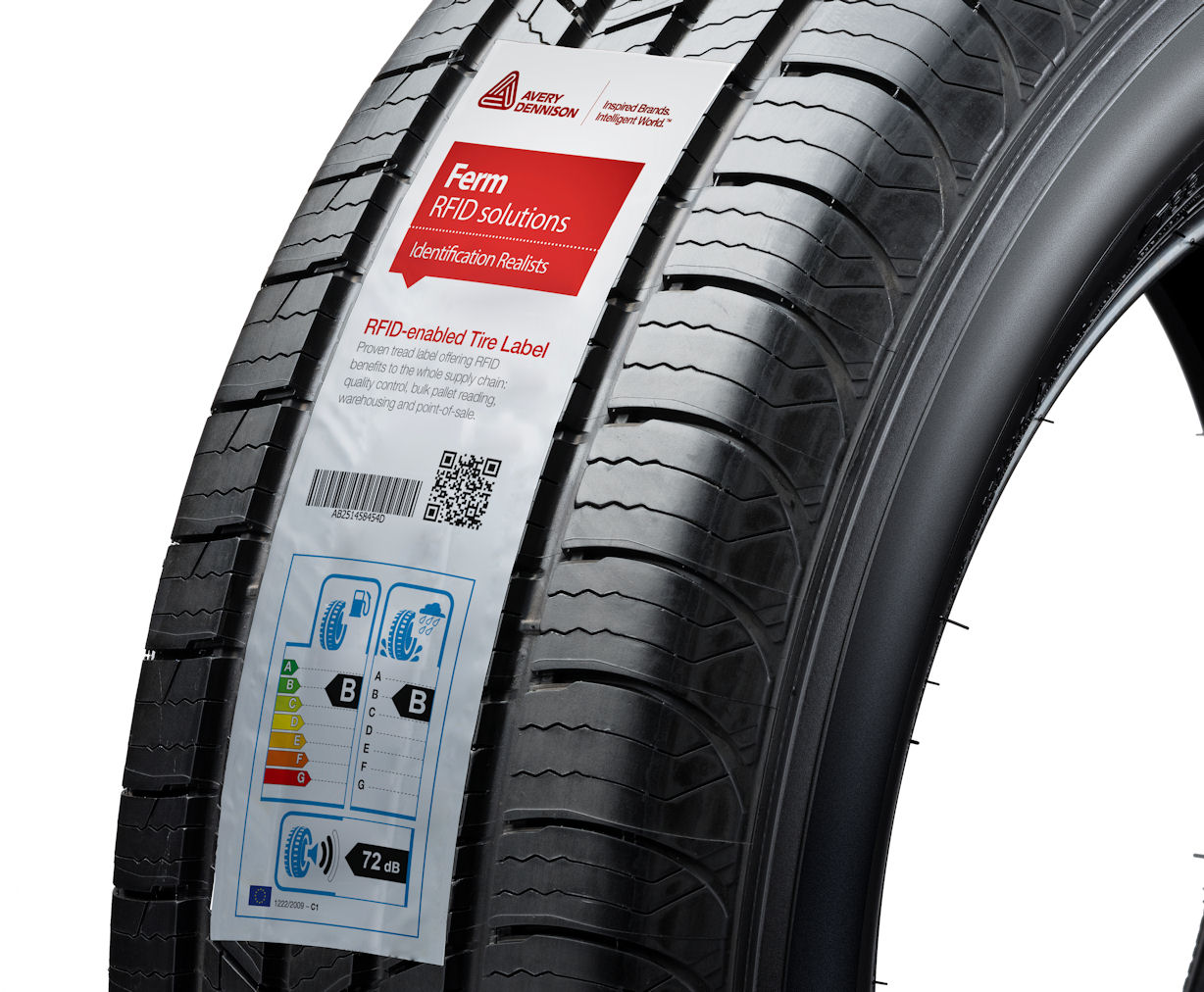New tyre tread label offers global RFID functionality
 Avery Dennison and Ferm RFID Solutions say this is the first truly universal tyre tread label with worldwide RFID functionality
Avery Dennison and Ferm RFID Solutions say this is the first truly universal tyre tread label with worldwide RFID functionality
Avery Dennison and Ferm RFID Solutions have together created a tyre tread label that, for the first time ever, offers worldwide RFID functionality. The label allows entire pallets of tyres to be read in a single pass and is compatible with all relevant standards.
According to Hans Eichenwald, senior product manager at Avery Dennison Materials Group Europe, the new product creates benefits across the whole supply chain, from manufacturing quality control through to distribution, storage and point-of-sale: “This technology helps to add value for manufacturers, who can trace goods more efficiently during production. It benefits logistics suppliers who can read entire pallets at once, and warehouses who need to track tyre expiration dates.”
He adds that the portfolio also ensures good visual appeal at point of sale: “Metallised materials are sometimes used on tyres because they resist staining, however they badly affect RFID readability. Our white tyre labels look good and retain their high visual impact, because they have built-in protection against swelling and staining once the label is on the tyre.”
The RFID tyre label technology was developed through a collaborative effort by Ferm RFID and Avery Dennison Materials Group Europe. Ferm RFID and Avery Dennison have contributed RFID and pressure-sensitive solutions respectively.
Ferm RFID Solutions cofounder Jos Uijlenbroek reports that the final product is able to handle a very wide range of applications: “This label uses copper wire antenna technology and is compatible with all UHF EPC Class 1 Gen 2 global RFID standards, allowing easier access to different markets. We wanted to ensure reliable performance in every kind of environment, and this label copes with all tyre types – for example, tyres with high carbon black or steel content. The RFID reading distance is the same for car, truck or aircraft tyres, and functions such as bulk reading of entire pallets are straightforward.”
Eichenwald shares that both polypropylene and polyester tyre labels in the Avery Dennison portfolio perform very well under challenging conditions: “Our hotmelt adhesive technology with bleed-free roll edges gives very good processability for label printers, and is also less expensive compared with solvent-based adhesive technology. We offer the flexibility needed to meet specific customer tread label applications at low order quantities.”
Uijlenbroek says the label will help to address key tyre segment issues such as first-in-first-out and coupling between customer orders and loading of trucks: “A large warehouse with hundreds of thousands of tyres presents an enormous logistical challenge, especially taking into account tyre expiry dates. We are able to create a custom label for an individual customer very quickly, and we also handle the systems integration needed to bring it online in the real-world operating environment.”
The two firms claim that the new RFID tread label technology allows up to 150 tyres to be read simultaneously at a distance of up to seven metres, with more dependable performance, lower error rates and reduced tyre wastage. Real-world durability is ensured by an RFID antenna that has been designed so it cannot be disconnected from the RFID chip. A proprietary Avery Dennison tyre label adhesive, with high coat weight and low-bleed gum pattern, supports production-friendly label conversion and reliable labelling results.


Comments